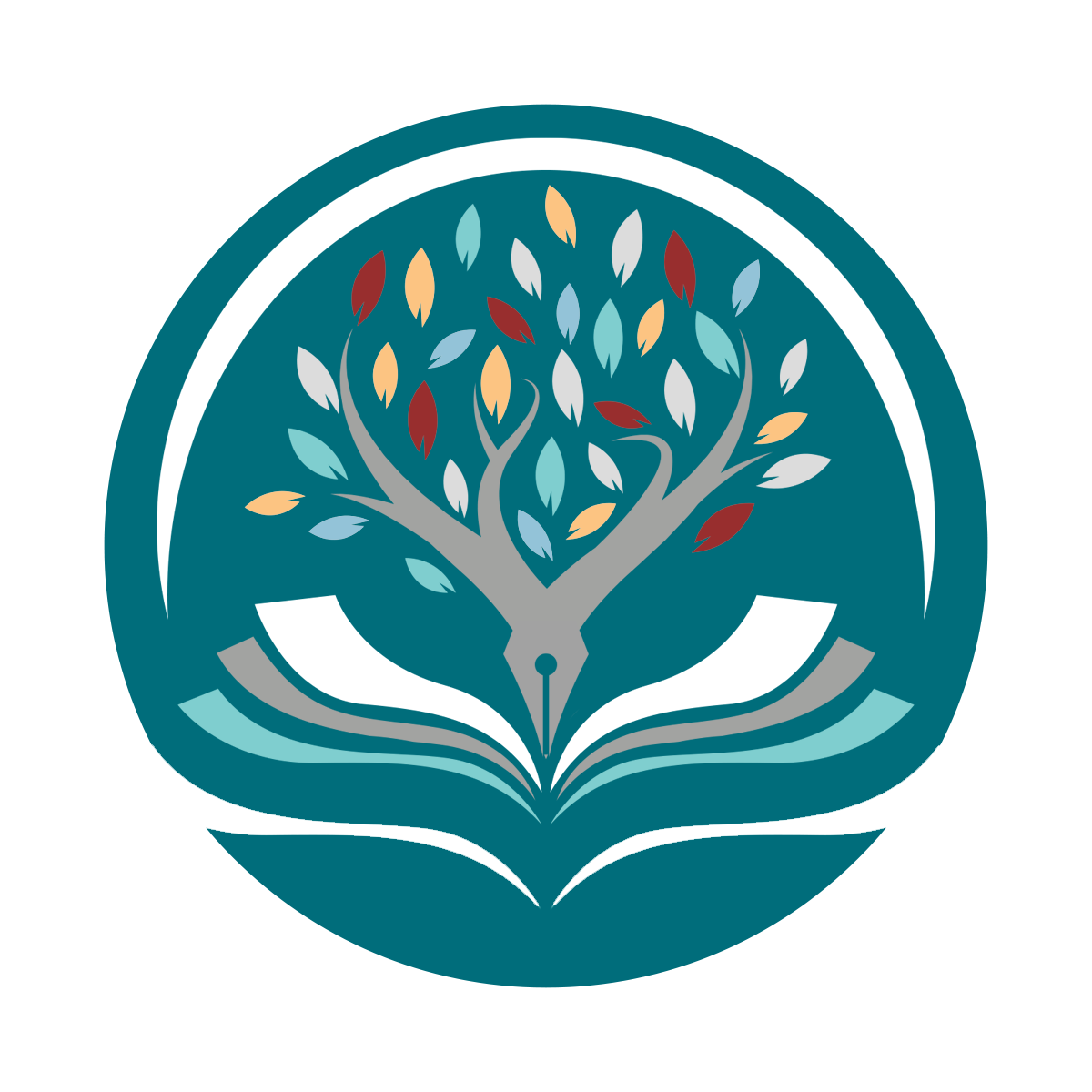Defining Your Author Identity:
The Key to Authentic Marketing

One of the things that’s consistently surprised me is that when I ask authors, “Why do you write what you write?” most authors seem to have no idea.
One of the things that’s consistently surprised me is that when I ask authors, “Why do you write what you write?” most seem to have no idea. In fact, they seem to have never even considered the question.
So if you’ve thought about this, you’re ahead of the game.
But if you haven’t, here’s your chance. Stop, take a moment, and ask:
Why Do I Write What I Write?

Authors’ Motivations for Writing
Authors generally know why they write. It’s to educate, to entertain, to enlighten, or simply because they can’t not write. Or a combination of those. But when they sit down, they choose to write certain things. Certain genres. Certain settings. Certain characters. Certain stories.
How we choose what we write may be one of the most important choices we make as authors, if we want to be successful. Being authentic (we’ll talk about what that means in a minute!) is one of the most important factors in being a successful author, whether it’s in their writing itself or, as we’re talking about here, in marketing. The fact is that what makes you successful in one will, or at least, can, make you successful in the other.
Traps!
There are so many traps that an author who wants to be successful might fall into.
One of the big ones I’ve seen for years, is that authors look at what’s selling and try to emulate that. This is a trap for so many reasons I hardly know where to begin. First, what’s working now probably won’t still be working in 1-3 years, which is the most common timeline for turning an idea into a published book.
But that’s not the biggest reason it’s a trap. The biggest reason is that we’re writing something because we want to be successful, not because we actually care about the book. And readers can tell that right away. They can smell it, almost, both in the book and in the marketing.
Another one that gets talked about a lot here and shows itself in many forms is the trap of doing things in the way others do it.
When we take classes from people, we’re going to hear about rules for how to do things. There’s nothing wrong with classes or rules in themselves. The trap is when we start thinking that following some rule or formula will yield guaranteed results. Plenty of bad books have been written following formulas. The flip side is that very few good books have been written that totally ignore them.
Rules are tools and guidelines for success, not a guarantee. And this is never more true than in marketing. When you see classes and advertisements for how to sell books, they’re often presented as a guarantee of success. Most of those, but not all, use techniques that are pretty much the opposite of “authentic” and, again, the readers can sense that.
But here’s the thing—sometimes, perhaps often even, they work. Creating things like artificial scarcity or deadlines (Only X Remaining! For a limited time!) work because of the psychology they use, which is usually based on fear. You have to ask yourself if this is the kind of relationship you want to have with your readers.
I know I don’t.

Motivations that Work
When we first founded our publishing company, one of the things that, while we didn’t realize it at the time, we were looking for were authors who really cared about what they were writing about and their craft. We knew they had a why for what they wrote, even if they didn’t understand it themselves.
When you really care about something, that comes out in your passion, your drive, and ultimately is the only real motivation that works for both writing and marketing.
Of course, there are other motivations along the way. Becoming a better writer, for example. Or making a living. Or serving your readers. All of these are important. Some of them also play a part in understanding why you write what you write.

Understanding Your Author Identity
Understanding your author identity starts with understanding your identity as a person. Are you a wife or husband? A mother or father? Do you live in a city or the country? Do you love to cook or eat out? Are you a person of faith or not? What questions do you find yourself asking constantly?
On a shallower level, what do you do for fun? Do you read or go to movies? Do you garden or paint? Would you rather watch TV or do woodworking? There’s no wrong answer.
Now, do any of these things match the kinds of stories you want to tell or the kind of books you want to write? If yes, then great! You’ve got somewhere to start. If no, then maybe you need to push in a little deeper.
Take a moment to read something you’ve written. As you’re reading, what jumps out at you? What do you find yourself most proud of? Or ashamed or embarrassed of? Who would you want or not want to read this?
Why?
How does reading this make you feel? (This one’s a harder question, so be prepared to take some time with it.) What other times have you felt like that? What was happening in your life? Who was around?
You see, sometimes the reasons we write are far below the level of intellect and reason. I think that this is the primary reason that so many authors can’t answer the “Why do you write what you write?” question. But if you’re going to be an authentic author who serves readers as only you can, you need to know.

Using Your Author Identity to Create an Authentic Author Brand
OK, so this is the time to take up the word “Authentic,” and I’m going to try to keep it as simple as possible. When I’m thinking about what I mean when I say someone is authentic, I tend to mean that they actually care about what they’re talking about and writing about and posting on social media about for it’s own sake. Not because of what it can get them or even what it can do for others, but because it’s important.
Authentic authors tend to see the world differently and come to epiphanic realizations that make deep connections with their readers. Think about your favorite books and authors and you’ll probably see these there.
The authenticity isn’t accidental, and neither should your branding be.
One of the things I say when I talk to authors about crafting an identity-based, authentic brand is, “Find people where they are and serve them as only you can.” That’s often in response to the knee-jerk reaction of authors who don’t just want to become another content-based marketing machine.
Which can be a real fear because I’m going to ask authors to actually talk about their whys in ways that might not be comfortable. I’m going to suggest they do things like keyword research or write articles. I might ask them to turn some of their language a few degrees to fit the way people search for the question they’re answering.
They feel like sell outs.
But if you start from a place of actually caring—of being authentic—then readers are grateful for the work you do. You’ve made a way for them to find you and connect with you that they wouldn’t have otherwise had—because you were authentic but also deliberate.

Using Identity to Build Community
One of the goals (since we’re being deliberate, or I could have almost as easily said “side effects”) of identity marketing and an authentic author brand is creating community.
Sometimes people ask me what the difference is between wildly successful books, authors, or brands and less-popular ones, and one of the things that almost inevitably show up is community. Plenty of people are successful enough having relationships directly with their authors. Lots of people will stand in line to get a book signed by an author; but the true mark of success is when those people hang out and talk not just with the author, but with each other. They share a common love of author and book, but also of the community they create.
This community—this horizontal relationship between readers; no, fans—is the magic of identity marketing. When readers have something in common with you as an author, they’ll also have things in common with other readers, and if you’re aware of what this commonality is and are deliberate in using it to connect other people, you create community and change the world, all while staying true to yourself.

Tips for Staying True to Your Author Identity
- Know yourself and make sure everything you write or post on social media reflects your identity.
- Know why you write what you write. Pay attention to when others are connecting with it too and double down on that.
- Use your marketing—particularly content marketing—to test out new ideas and parts of your identity.
- When something really catches hold in your marketing, ask the age old question: Why?
- Once you have an idea of why something catches hold, use it everywhere.
- What you’ve found, others want, so don’t think you’re being self-serving.
- Don’t give into fads.
- Don’t be spammy or emotionally manipulative.
- Don’t follow trends just because others are using them successfully.
- Learn the rules and follow them because it’s what people around you expect.
- Bend or break the rules when that’s what your identity group comes to expect.
Understanding your “Why” and getting to the core of why you write what you write will take time, but the time it takes will pay off massively. Like most things that are worth it, it’s not easy, but if you make sure you align your writing career with your identity, it’ll make the journey both more bearable (on bad days) and enjoyable.
If your goal as an author is to make a living from your writing, understanding your identity will be the key that unlocks success after success. Your identity as an author and as a person is always there with you, so it’s vital that you recognize it, understand it, and embrace it for your own sake and the sake of all the readers out there you’ll be serving.

